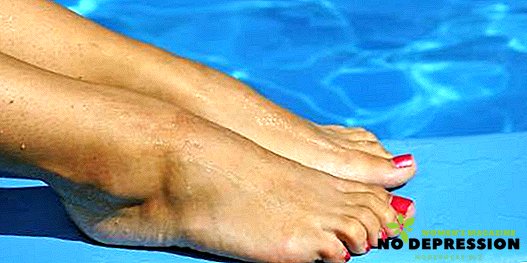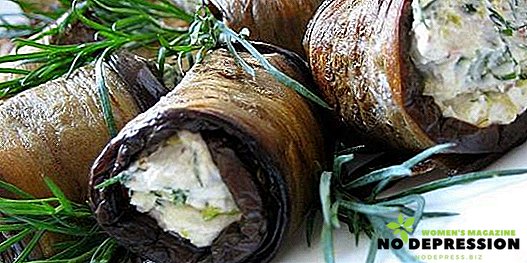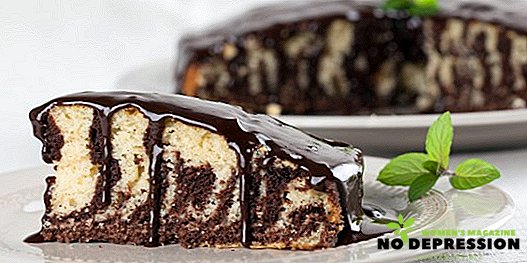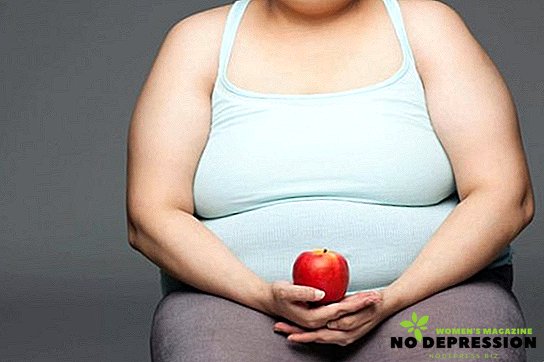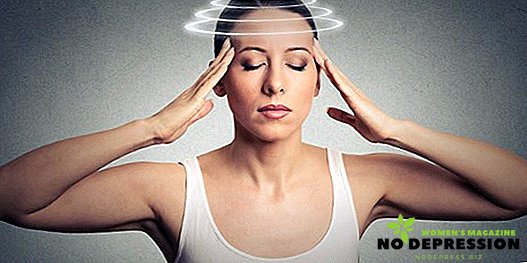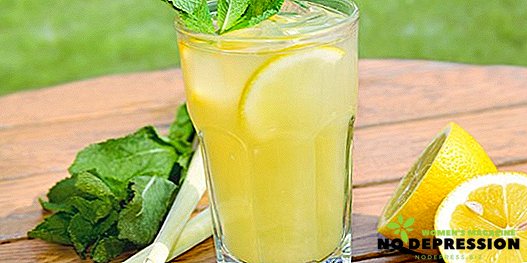Vegetarianism implies a varied diet. Classic vegetarians refuse meat, do not consume fish and seafood. But these people are called lacto-ovo vegetarians because they eat eggs, milk, and dairy products.
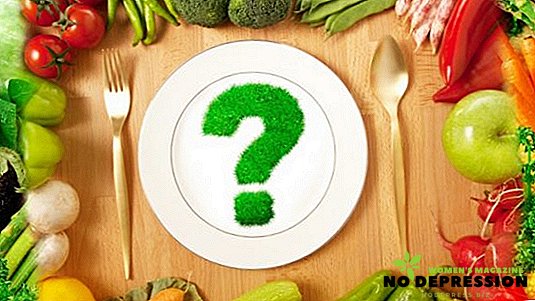
What is vegetarianism?
According to authoritative sources, this is a food system with a complete or partial absence of animal products in the diet. Others believe that vegetarianism is a way of life that includes not only the food system, but also stable moral principles, for example, non-violence. Delving into the history of vegetarianism, it becomes clear that this system originated in India.
It turns out that at that time it was already easy for Indians to imagine their life without heavy animal food. In addition, it was influenced by Buddhism. With such a rejection of animal food, there lived people who practiced spiritual practices. Nowadays, being a vegetarian is fashionable.
Proponents of a diet that is based on plant foods, are convinced that the human body can get trace elements from plants, berries, fruits, legumes.
Protein is found in peas, walnuts, parsley, cabbage, spinach, avocado. Carbohydrates - in glucose, lactose, sucrose, and so on. Even regularly losing weight they need at least a small amount. These trace elements can be found in bran, honey, citrus, pasta. Fats are found in seeds and any nuts. Amino acids can often be obtained from vegetables such as carrots, eggplants, soy.
Why don't such people eat meat and fish?
The reasons for the mass. But the main thing is the refusal to participate in violence against animals, albeit indirectly. In addition, there are a number of reasons to abandon meat products due to concern for the environment, spiritual practices, the desire to reduce world hunger. The list of permitted foods for vegetarians is quite diverse:
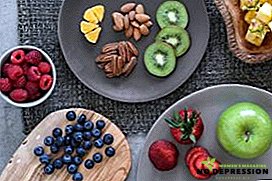 cereals;
cereals;- cereals;
- milk, dairy, dairy products;
- legumes, soybeans;
- fruits, vegetables, dried fruits, berries;
- mushrooms;
- walnuts;
- honey;
- bread, bakery products;
- spice;
- desserts without gelatin;
- non-animal products and seafood, such as algae.
Cheese is a controversial product. The list of prohibited foods is also wide: all kinds of meat, all kinds of fish and seafood. Including prohibited artificially grown meat. Also, vegetarians do not eat foods that contain gelatin, as it is produced by digesting animal bones. Rennet and pepsin, which are derived from calf stomachs, are also prohibited.
Fish oil, dye E120, produced from insects, albumin, derived from blood are also not included in the diet of vegetarians. They often refuse sugar because many companies use a bone filter to make it white.
An important question is whether classic vegetarians consume cheese. This product is made using rennet, which vegetarians do not eat. However, on sale can be found synthetic cheese substitutes. Such products are perfect for a vegetarian table.
Do they eat fish and seafood? Of course not. However, there are people who refuse meat, but at the same time consume fish and shellfish. They are called peschetarian.
To replace meat and fish, non-animal phosphorus is derived from vegetarians from grains and seeds. And the necessary body omega-3 is contained in tofu, pumpkin, wheat germ. The daily meat menu is replaced with soy products, beans, eggs. With a balanced diet, the body is not harmed, because vegetarian dishes are light, and at the same time the body gets all the necessary nutrients and minerals.
Is vegetarianism good or not?
Absolutely, we can say that vegetarianism is not a panacea for all diseases. In addition, medicine known side effects from such a diet. The advantages include a sense of energy and lightness in the body, the state of cheerfulness is maintained for a longer period.
According to statistics, the number of people who at least once survived a heart attack is much higher among those who love meat. Dairy, legumes, cereal products are very useful, they bring a lot of valuable trace elements into the body. Such a diet helps to cleanse the body, thus, harmful bacteria and cholesterol are quickly eliminated from the body.
Among vegetarians, the risk of cancer is reduced due to the rejection of meat, which is saturated with hormones, anabolic, antibiotics, harmful to the human body. Work of a gastrointestinal tract improves due to the use of cellulose which contains in vegetables and fruit.
The disadvantages include the inability to purchase some products, especially if they are expensive. At first, vegetarians do not leave a feeling of weakness, malnutrition. Due to the lack of a number of microelements, the strength of bones is disturbed, which leads to an increase in the risk of fractures and difficult rehabilitation after them.
According to recent studies, some vitamins, for example, B12, MG, Ca, are found only in meat. Such a diet is contraindicated in women during pregnancy and lactation, the elderly, people with weakened immune systems. Vegetarians also have a lack of iodine.
Lacto-vegetarianism
People who adhere to this type of vegetarianism do not eat eggs, but do not deny themselves milk. Eggs are excluded from the menu due to animal origin, as chicks can hatch from them. Some vegetarians make an exception, allowing the use of factory eggs. But farm eggs are strictly prohibited.
Such vegetarians eat all the foods listed above except eggs. And the list of prohibited foods is identical to classic vegetarianism. For example, they do not eat foods that include lecithin, which is obtained from eggs. However, on sale you can find vegetable or soy lecithin substitute for cooking.
Also, you can not eat anything that may contain egg powder. For example, instant mashed potatoes, waffles, egg noodles. Moreover, the egg ingredients are often denoted differently: globulin, Levitin.
Ovo vegetarianism
 Representatives of this group refuse milk, dairy and dairy products, but consume eggs. Due to this, the body's need for animal protein is not satisfied. The list of products that are approved by ovo-vegetarians includes all positions from the list of products for lacto-ovo-vegetarianism, with the exception of milk and products based on it.
Representatives of this group refuse milk, dairy and dairy products, but consume eggs. Due to this, the body's need for animal protein is not satisfied. The list of products that are approved by ovo-vegetarians includes all positions from the list of products for lacto-ovo-vegetarianism, with the exception of milk and products based on it.
Of course, it is forbidden to eat any foods that contain lactose. You should also carefully study the labels of goods, since milk may appear in the composition of products under various names, such as lactoglobulin. But if a person does not eat meat, he needs a different way to get protein. Nutritionists believe that eating only one source of protein in the form of eggs is not enough for the normal functioning of the body.
Some doctors claim that this type of vegetarianism is harmful due to the heavy digestibility of eggs. After all, using them in large quantities can cause digestive disorders.
Vegans
Veganism is considered to be the most strict nutritional system, consisting of plant food, which implies the refusal of absolutely all animal products: fish, honey, propolis, and pollen. Caviar is also excluded from the diet, since new fish should later hatch from it.
Eating caviar means to strip the fish offspring. Honey is not consumed because of the violent attitude towards the bees that produce this product. There is information according to which queens are killed every two years, replacing with younger ones. In addition, the process of removing honey from the hive is detrimental to insects. And the conditions of keeping bees in apiaries lead to the development of insect diseases and their early mortality.
At the core of the vegan diet are cereals, vegetables, cereals, fruits, mushrooms, nuts, oils and spices. As a rule, adherents of this type of food refuse products that are tested on animals, do not buy products made of wool, leather, silk, fur. In other words, veganism is a complete non-interference in the life of animals.
Vegans, in turn, are divided into three groups:
- Raw foodists, that is, those who eat foods that have not undergone heat treatment. Due to this, a maximum of useful substances is preserved.
- Fruittorians who consume only fresh fruit.
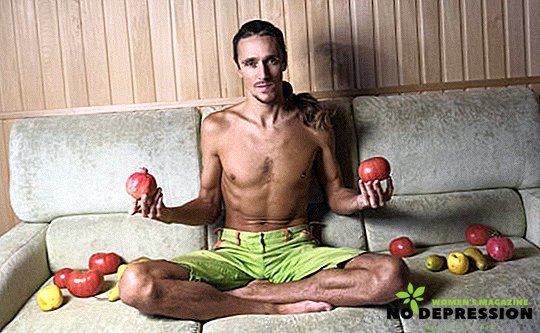
- Microbiota, which prefer cereals and practically do not consume vegetables and fruits.
Vegans also avoid excessive consumption of snacks, sweeteners, artificial milk due to the fact that such products contain large amounts of sugar. Vegans do not eat fatty foods. In general, the principle of their nutrition is characterized as the conscious consumption of healthy plant substances in food.
In terms of nutrients, nutritionists consider veganism to be the most inadequate nutritional system. Due to the lack of animal protein sources, it is very difficult to replenish it. In addition, it is rather difficult to eat in this way, since fruits and vegetables are cheap only in a season, and their cost is very high during the rest of the year.
In addition, not every body can go on a vegan diet, because our bodies can respond to a variety of diseases.
How to replace fish and meat?
You cannot replace meat and fish with any one product, but you can make up a diet in such a way as to compensate for all the beneficial substances found in meat. Most often it comes to protein. Vegans who do not eat animal protein are the hardest to compensate.
The best protein products include:
- Eggs They can be included in the diet of all ovo-lacto-vegetarians. If for some reason you decide to abandon meat, it is better not to go straight to veganism, but to change the diet gradually. Because animal protein, unlike vegetable, is better absorbed.
- Dairy products. Another good source of protein and calcium, which usually disappear from the diet with the transition to a vegetarian diet.
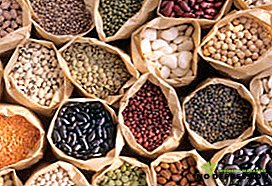 Legumes, such as beans, peas, chickpeas, lentils. Such products are rich not only in plant proteins, but also in iron and various vitamins. However, it should be borne in mind that, for example, it is impossible to load the gastrointestinal tract with lentils, therefore it should not be included in large quantities in the diet, and iron from legumes is not digested as well as from meat and eggs. To improve the absorption of protein, it is better to use legumes with vegetables.
Legumes, such as beans, peas, chickpeas, lentils. Such products are rich not only in plant proteins, but also in iron and various vitamins. However, it should be borne in mind that, for example, it is impossible to load the gastrointestinal tract with lentils, therefore it should not be included in large quantities in the diet, and iron from legumes is not digested as well as from meat and eggs. To improve the absorption of protein, it is better to use legumes with vegetables.- Groats such as buckwheat, rice, oatmeal. Most vegetable protein in buckwheat, but in other groups there is a lot of it. If you refuse milk, then omelet or oatmeal in water will be an excellent source of protein for the whole day.
- Nuts and seeds are rich not only in protein, but also in vitamins and amino acids.
It is easier to fill in the diet of protein than iron. The problem is that the body absorbs iron better, which is part of hemoglobin and animal food. Iron deficiency can lead to anemia, so you should include iron-rich legumes, fruits, cereals, cereals in the diet.
However, remember that just eating animal foods will not help, so if you play sports or lead an active lifestyle, you should additionally take iron as supplements or vitamin complexes.
How to keep the balance of vitamins?
Vegetarian food is often criticized for the lack of certain amino acids and vitamins. First, animal protein is better absorbed due to the content in meat of some fatty acids and amino acids. In addition, calcium is also better absorbed from animal products. And omega fatty acids and vitamin B12 are found only in those foods that vegetarians do not use.
The first thing to remember is that vitamin B12 in its active form, in which the body needs it, is not found in food of plant origin. Neither seaweed or other delicacies that vegans can eat will not make up for its shortage. The good news is that this vitamin is found in milk, eggs, so lacto-ovo vegetarians need not worry.
 Vegans also need to include in the menu nutritional supplements that are enriched with vitamin B12. If you are on a vegan diet, you must control the level of methylmalonic acid in your blood and urine.
Vegans also need to include in the menu nutritional supplements that are enriched with vitamin B12. If you are on a vegan diet, you must control the level of methylmalonic acid in your blood and urine.
It is necessary to include milk and eggs in the diet. But if this is against your rules, then you can not do without the use of vitamin complexes. To maintain the balance of calcium in the body you need to eat poppy, nuts, sesame.
But with omega-3 and omega-6 is somewhat more complicated, since these essential acids can be obtained by our body only with food. With their deficiency, the nervous, immune, cardiovascular systems suffer. Omega-6 is contained in sunflower oil, you should not worry about the deficiency of this acid. But omega-3 is only in fish, and if it is abandoned, there may be a threat of an amino acid deficiency.
To solve this problem, you need to include in the diet flaxseed or hemp oil, wheat germ. One spoonful of butter and a handful of nuts a day is enough.
How to switch to vegetarianism?
When switching to a similar lifestyle, you need to understand that this process is very long. If you follow all the rules of nutrition, the body will need at least 25 days to rebuild to a new mode. It is prohibited in the first part of the transition to stop taking all the usual dishes. We'll have to make a 3-week diet to adapt the body to the absence of animal products. If you decide to immediately go to the new regime, the nervous system will be difficult to endure such a diet.
Refuse meat should be gradually. To begin with, they make up the usual weekly schedule for receiving animal products and, based on this scheme, they gradually reduce eating meat. A week later, start to include in the diet of milk proteins, but gradually move away from the use of seafood. It is better to replace them with cereals, nuts. Prefer Japanese cuisine without meat components.
 If you decide to refuse animal milk, you can find almond or coconut milk on sale. An alternative to butter is peanut butter. You should not give up bread at all, for modern baking often does not use chicken eggs.
If you decide to refuse animal milk, you can find almond or coconut milk on sale. An alternative to butter is peanut butter. You should not give up bread at all, for modern baking often does not use chicken eggs.
Consider the fact that if you are seriously determined to switch to vegetarianism, you need to prepare yourself morally as well. If you want to lead a healthy lifestyle, you need to think of a balanced diet. Find out what vitamins and microelements you need, find out what foods they contain.
An important rule of transition to vegetarianism: forget about junk food. Many believe that when they switch to this food system, they will eat only healthy food. But if you have a weakness for fried potatoes, this does not mean that such a dish will benefit you, nor should you be carried away with soy cutlets. If you decide to improve your health, then such food should be discarded. Cook your usual dish just without meat.
It is worth going into details in order to learn about all vegetarian products, otherwise the daily consumption of the same food will negatively affect your health. Replace familiar products with similar ones. Do not give up your favorite dishes. For example, you can add cheese, berries, cottage cheese to the dumplings. If you like pasta, make them yourself at home without adding eggs. And when cooking, pay attention to spices and spices to diversify food.
Other tips:
- Eat porridge. A common mistake of most beginner vegetarians is that, consuming fruits and vegetables, they forget about simple healthy cereals. Cereals often help to fill the necessary elements. It should be borne in mind that when they switch to a new diet, many people feel uncomfortable for some time. If your body requires meat, just eat more protein foods. But if there is a serious concern about giving up meat, reconsider your diet.
- Stew vegetables. Do not confuse vegetarianism and diet on raw vegetables. Eating fresh salads will increase the amount of food eaten. If you decide to start a new life without animal products, increase the portions that are eaten. If you feel hungry, then such signals of the body indicate only that you really eat little.
- Visit a nutritionist. When switching to vegetarianism, it is advisable to consult with a specialist. He will prescribe tests, identify possible diseases, which will make it possible to switch to a new diet as safely as possible.


 cereals;
cereals;
 Legumes, such as beans, peas, chickpeas, lentils. Such products are rich not only in plant proteins, but also in iron and various vitamins. However, it should be borne in mind that, for example, it is impossible to load the gastrointestinal tract with lentils, therefore it should not be included in large quantities in the diet, and iron from legumes is not digested as well as from meat and eggs. To improve the absorption of protein, it is better to use legumes with vegetables.
Legumes, such as beans, peas, chickpeas, lentils. Such products are rich not only in plant proteins, but also in iron and various vitamins. However, it should be borne in mind that, for example, it is impossible to load the gastrointestinal tract with lentils, therefore it should not be included in large quantities in the diet, and iron from legumes is not digested as well as from meat and eggs. To improve the absorption of protein, it is better to use legumes with vegetables.
